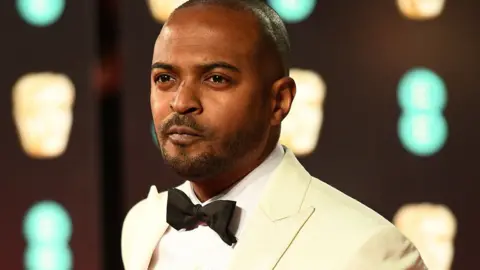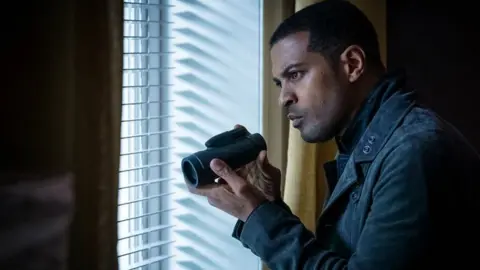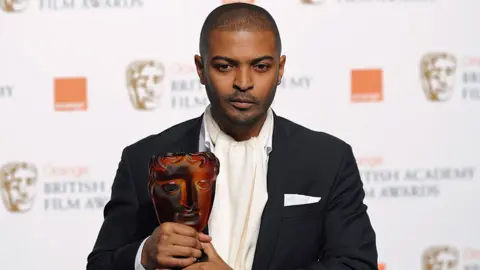Noel Clarke says sorry but denies sexual misconduct
 Getty Images
Getty ImagesActor Noel Clarke has said he's "deeply sorry" for some of his actions and will seek professional help, but has again "vehemently" denied sexual misconduct.
His statement comes after 20 women accused him of harassment and bullying. ITV and Sky have now dropped his shows.
He said: "I vehemently deny any sexual misconduct or criminal wrongdoing.
"Recent reports however have made it clear to me that some of my actions have affected people in ways I did not intend or realise."
He added: "To those individuals, I am deeply sorry. I will be seeking professional help to educate myself and change for the better."
The statement follows ITV's decision not to broadcast the final episode of the police drama Viewpoint, in which he stars, on Friday.
His Viewpoint co-stars Bronagh Waugh and Alexandra Roach tweeted their support to the women who made the allegations.
Sky has also "halted" its work with Clarke, including on the fourth series of crime drama Bulletproof.
And he has been suspended by Bafta, almost three weeks after the British film and television academy gave him an award for his outstanding contribution.
Clarke is known for playing Mickey Smith in Doctor Who from 2005-10, and for his film trilogy Kidulthood, Adulthood and Brotherhood. He is also a writer, director and producer.
He played a surveillance detective in Viewpoint, which has been on ITV every evening this week. It was watched by 3.5 million people on Thursday.
 ITV
ITVBut on Friday, the broadcaster said it was "no longer appropriate to broadcast the final episode" as planned in light of the allegations.
However, the finale will be available on streaming service ITV Hub from Friday night until Sunday "for any viewers who wish to seek it out, and watch its conclusion".
Meanwhile, Clarke has starred in three series of Sky crime drama Bulletproof, which had a fourth series commissioned in January.
The broadcaster said on Friday: "Effective immediately, we have halted Noel Clarke's involvement in any future Sky productions."
 PA Media
PA MediaBafta has been criticised by some for honouring Clarke on 10 April. It had received reports of allegations against Clarke in the 12 days between announcing him as the award recipient and the ceremony itself.
According to the Guardian, Bafta's chairman Krishnendu Majumdar said he had heard that as many as 12 women could be making allegations.
In a letter to members in which it defended its response, Bafta said the emails it received "were either anonymous or second or third-hand accounts via intermediaries".
"No first-hand allegations were sent to us," it said. "No names, times, dates, productions or other details were ever provided.
"Had the victims gone on record as they have with the Guardian, the award would have been suspended immediately. Noel Clarke's counsel received a legal notice to this effect. It was always very clear what our intentions would be."
Bafta added that it was "an arts charity that is not in a position to properly investigate such matters".
The Charity Commission said Bafta had "submitted a serious incident report", which the regulator is now assessing.
'Damning indictment'
Paul Fleming, general secretary of arts union Equity, said it had been "a difficult day for those who run the industry".
"It's a phenomenally embarrassing and traumatic 24 hours if you're a gatekeeper and in charge of what goes on in our members' workplace," he told BBC Radio 4's PM Programme.
"It really does take something to be here, [the] best part of four years on from #MeToo and still be asking these questions.
"And for big bosses, big producers to have not put in place the polices practises and cultures in workplaces that allow these things to be considered credible…
"This is a really, really damning indictment of how intimidating some workplaces and some producers are for our members to raise concerns."
